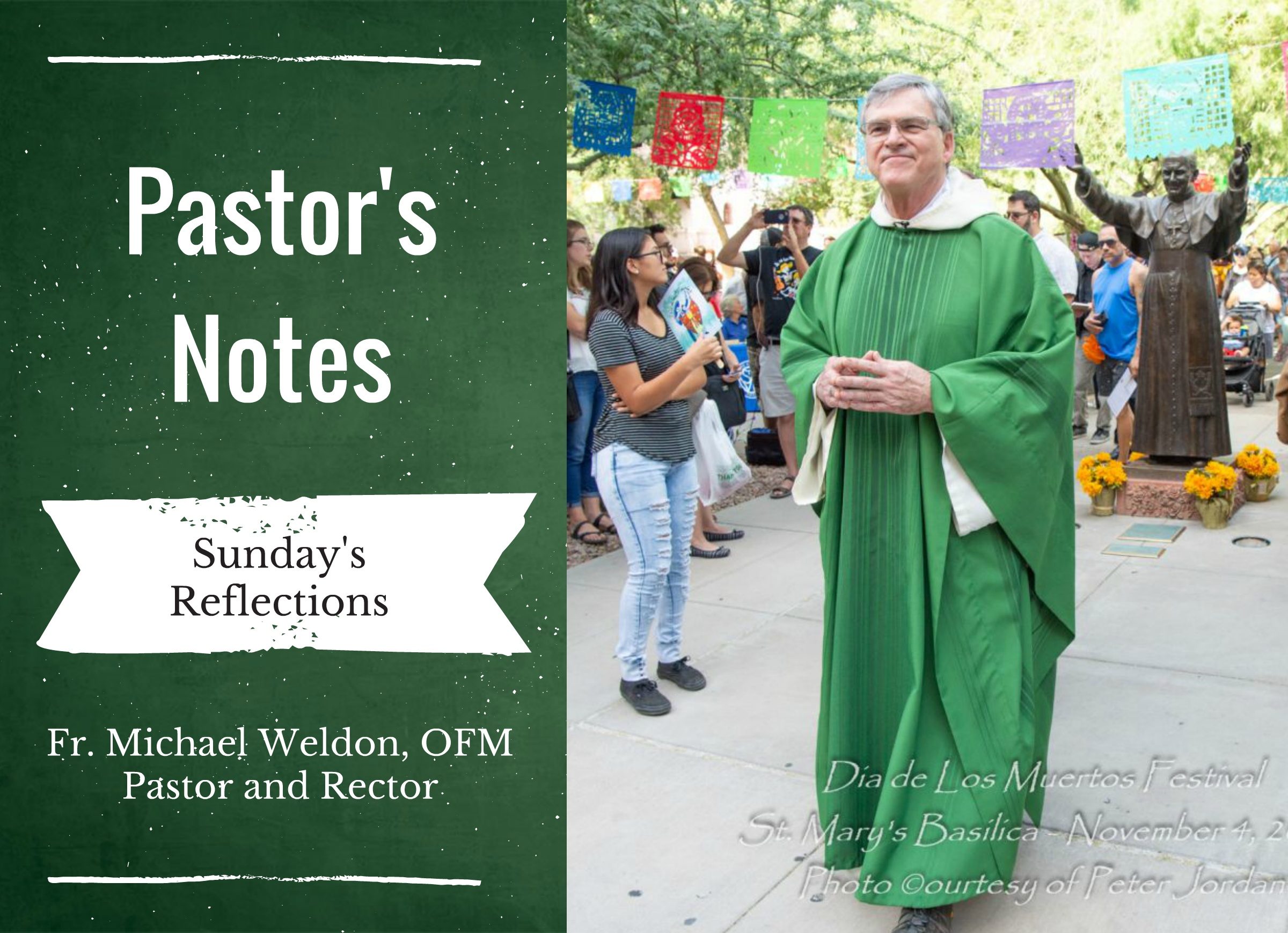St. Mary's Basilica
Phoenix, Arizona
Pastor’s Notes

“70 X 7 Times”
“Say what?” I have always loved the extent of that deeply American question. St. Matthew’s Jesus challenges the limits of interpersonal forgiveness, “Lord, if my brother sins against me, how often must I forgive? As many as seven times?” The Kingdom of heaven takes Peter a lot further than he planned. “I say to you, not seven times but seventy-seven times.” Jesus highlights a level of “letting go” directly from the offended heart for new solidarity with one’s brother or sister.”
Granting forgiveness for minor offences is a challenge. The neighbor who gossips about us, the driver who cuts us off in traffic, or the friend who hurts our feelings, leave us managing deep human aches. As Christians, we are invited to live from the heart even in front of the most heinous, brutal, savage crimes against humanity. This level of forgiveness feels next to impossible. Anger is often the culprit, especially when it is the result of an offense of human rights. As human beings’ anger is a gift from our evolution for self-protection. It is plugged into our DNA. Not recognizing and acknowledging its power can lead to deep darkness and even life-threatening depressions.
Ben Sirach described “wrath” (anger out of control) as a hateful thing! We’ve seen it lately again. “…the vengeful will suffer the Lord’s vengeance.” Jesus’ response to Peter pushes this beyond human limits. St. John’s Gospel invited a forgiveness beyond our right to “get even” with the perpetrator. Not only are we expected to forgive, but we are called to love: “a new commandment, says the Lord; love one another as I have loved you” (13:34).
Say What? Working through grief and anger with the gentle hand of God’s favor borders on miraculous. We get it in Baptism, a deep goodness beyond any trauma. Completed reconciliation in our life’s minor skirmishes, but most especially our traumatic hurts reflects the presence of the risen one. Time, graced time, makes it happen. It’s God’s work and can never be rushed. Stages of anger and grief must be walked through. Our wounds become “a womb” that evolves into self-giving love beyond ourselves.
With a little more time, a story of offence can be transformed, reframed to include the context and life story of the offender. God does the work. Human change can happen. It starts with an act of the will, a decision of great self-love —to give up the nourishing of a wound. Imagine? The power of God’s love makes it possible to let go of our right to get even. Not to “forgive and forget!!!” That is not from the Christian Scriptures that I know. “Remembering in a different kind of way” helps us release our sense of being victims to being victors over any cruelty or inhumanity.
To forgive an offender – for some takes a lifetime, for others a few moments. Forgiving one’s self may be more strenuous! But the presence of the Risen One in the church and at the side of the wounded, crafts a new world. “Say what?”
A gentle week.
Fr. Michael Weldon, OFM
